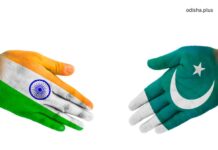This topic is crucial for the nation and deserves thorough discussion both in Parliament and among the public
Bhaskar Parichha

One Nation, One Election (ONOE) is an electoral reform pushed by the BJP-led NDA government, but it is facing strong opposition from other parties as two Bills are set to be introduced in the Lok Sabha soon. The Constitution (129th Amendment) Bill aims to allow simultaneous elections for Parliament and state Assemblies, while the Union Territories Laws (Amendment) Bill intends to align Assembly elections in Delhi, Jammu & Kashmir, and Pondicherry. The government has postponed the introduction of these Bills and plans to present them later this week during the winter session of Parliament.
This topic is crucial for the nation and deserves thorough discussion both in Parliament and among the public. The BJP and its partners argue that ONOE would save time and resources and reduce interruptions from the frequent enforcement of the Model Code of Conduct. However, the Congress and other opposition parties worry that this plan could undermine India’s federal system.
A significant concern is that voters might choose the same party for both the national and state levels if elections are held simultaneously. Elections for Parliament and State Assemblies that are just months apart can yield very different outcomes, as demonstrated in Maharashtra this year. The Congress-led Maha Vikas Aghadi outperformed the BJP-led Mahayuti in the Lok Sabha elections, but the BJP made a strong comeback in the Assembly elections.
Even if Parliament successfully passes the Bills during this session, the reality is that the implementation of the proposed reforms is likely to take approximately ten years. This lengthy timeline raises an important question: why rush into a decision that has significant implications for every voter and political party involved? The potential consequences of such reforms are far-reaching, affecting not only the current political landscape but also the future of governance and representation in our democracy.
Given the complexity and the long-term impact of these Bills, a more prudent approach would be to send them to a Joint Parliamentary Committee. This committee could provide a platform for thorough examination and discussion, allowing for a diverse range of perspectives to be considered. By engaging in a collaborative process, members of the committee can work diligently to reach a consensus that reflects the interests and concerns of all stakeholders.
This approach would not only foster a more inclusive decision-making process but also ensure that the outcome is well-informed and carefully crafted. It would allow for the identification of potential pitfalls and the exploration of alternative solutions, ultimately leading to a more robust and effective reform package. In a democratic society, we must take the time to deliberate on issues that will shape the lives of citizens for years to come, rather than rushing through a process that could lead to unintended consequences and dissatisfaction among the electorate.
In conclusion, the stakes are high, and the implications of these Bills warrant a thoughtful and measured approach. By prioritizing dialogue and collaboration through a Joint Parliamentary Committee, we can work towards a reform that is not only effective but also enjoys broad support from the public and political parties alike. This way, we can ensure that the decisions made today will stand the test of time and truly serve the interests of our democracy.
(The author is a senior journalist and columnist. Views expressed are personal.)
#OneNationOneElection #ONOE #Elections2024 #ElectoralReform #BJP #IndianPolitics #Federalism #VoteIndia #ParliamentDebate #PoliticalReform #DemocracyInIndia #ElectionBills #PublicDiscussion


























